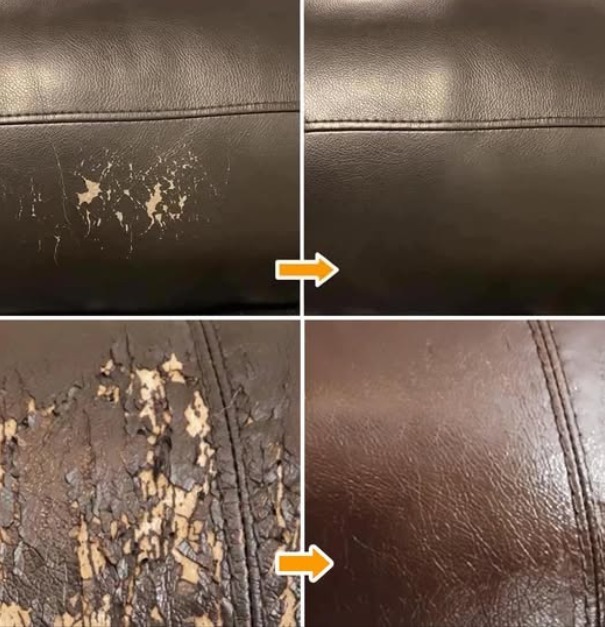Match Colors Precisely: Test the paint on a small, inconspicuous area first to ensure it matches perfectly.
Work in a Ventilated Area: Use paints and fillers in a well-ventilated space to avoid inhaling fumes.
Avoid Over-Sanding: Sand lightly to prevent further damage to the surrounding material.
Use Leather Conditioner: For real leather items, apply a conditioner after the repair process to keep the material supple.
Alternative Quick Fixes
Leather Repair Kits: These kits contain pre-mixed fillers, color-matching paints, and tools for fast repairs.
Fabric Patch: For larger damaged areas, use a leather or vinyl adhesive patch to cover the peeling spot.
Heat Transfer Vinyl: Use a heat press or iron to apply heat-transfer vinyl patches for a durable fix.
Preventing Future Peeling
Clean Regularly: Use a leather-safe cleaner to prevent buildup of dirt and oils.
Condition Often: Apply leather conditioner or moisturizer every 3–6 months to prevent dryness.
Avoid Direct Sunlight: Prolonged exposure to sunlight can weaken leather or imitation leather, causing it to crack or peel.
Keep Away from Heat: Avoid placing items near radiators or heaters.
By following these steps, you can breathe new life into your peeling leather or imitation leather items. The repaired surface will not only look good as new but also remain durable for years to come! ✨
ADVERTISEMENT

